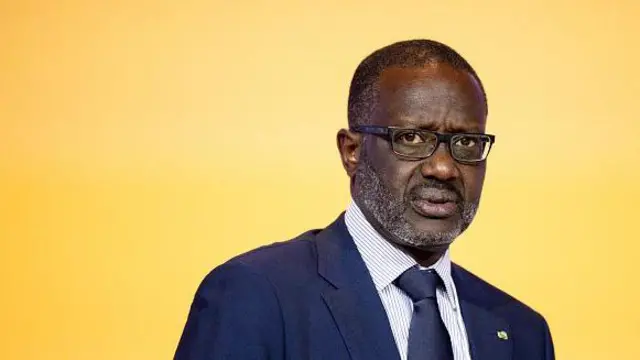Political Turmoil in Ivory Coast As Tidjane Thiam Faces Citizenship Challenges
The political landscape in Ivory Coast has taken a significant turn with the emergence of Tidjane Thiam, a figure well-known in international business but now facing challenges in the realm of local politics. As the country prepares for its presidential elections in October, questions about Thiam’s eligibility have resurfaced, bringing to light deeper issues concerning democracy and citizenship in the West African nation.
The Road to Candidacy
Thiam, who made his return to Ivory Coast in 2022 after a successful career in global finance, was quickly viewed as a potential front-runner for the presidency. He comes from a respected noble family, being a great-nephew of Félix Houphouët-Boigny, the nation’s first president. His prior experience in government during the 1990s and leadership roles at Prudential and Credit Suisse positioned him as a prominent candidate following the death of Henri Konan Bédié, leader of the opposition Democratic Party of Ivory Coast (PDCI).
On April 17, 2025, Thiam received the party’s nomination, signaling a potential shift in the political dynamics of the country. However, just days later, a judicial ruling deemed him ineligible to run for president. The court stated that Thiam had lost his Ivorian citizenship long ago upon acquiring French nationality without formally renouncing it, a situation that, according to him, should have exempted him from such a ruling.
Implications of the Court Ruling
If the decision remains unchanged, Thiam will be barred from the upcoming elections. This ruling comes in stark contrast to the overarching narrative of his candidacy, which represented a possible alternative to the current administration led by Alassane Ouattara, who is in his third term and considering seeking a fourth.
The complications surrounding Thiam’s eligibility highlight a troubling trend in Ivorian politics. Numerous other prominent opposition figures, including former President Laurent Gbagbo and Prime Minister Guillaume Soro, have faced disqualification due to past legal troubles, raising concerns about the fair representation of dissenting voices in the political process.
Democratic Health in West Africa
The situation in Ivory Coast mirrors growing discontent in West Africa, where military coups in Mali, Burkina Faso, and Niger have resonated with younger populations who feel disenchanted with traditional politics. With a majority of the population under 35, the desire for change is palpable, echoing sentiments witnessed during recent democratic transitions in Liberia, Senegal, and Ghana.
Economic Edge Amidst Political Crisis
Despite the current political anxieties, Ivory Coast continues to thrive economically, contributing significantly to the CFA franc zone and maintaining steady growth rates above 6% during Ouattara’s tenure. The nation’s wealth of resources, particularly cocoa, positions it as a regional powerhouse. However, the political uncertainty—especially with the ruling party potentially not facing substantial opposition—could stifle progress and further alienate voters.
Table of Key Political Figures and Their Status
| Name | Status | Background |
|---|---|---|
| Tidjane Thiam | Disqualified | Former CEO, Prudential and Credit Suisse |
| Alassane Ouattara | Incumbent | Current President |
| Laurent Gbagbo | Disqualified | Former President |
| Guillaume Soro | Disqualified | Former Prime Minister |
As the electoral campaign progresses, the fate of Tidjane Thiam may hinge not only on legal challenges but also on the collective will of the populace and the possible interventions from current leadership. With the October elections drawing closer, the implications of this case on Ivorian democracy and the broader West African region remain crucially significant.


